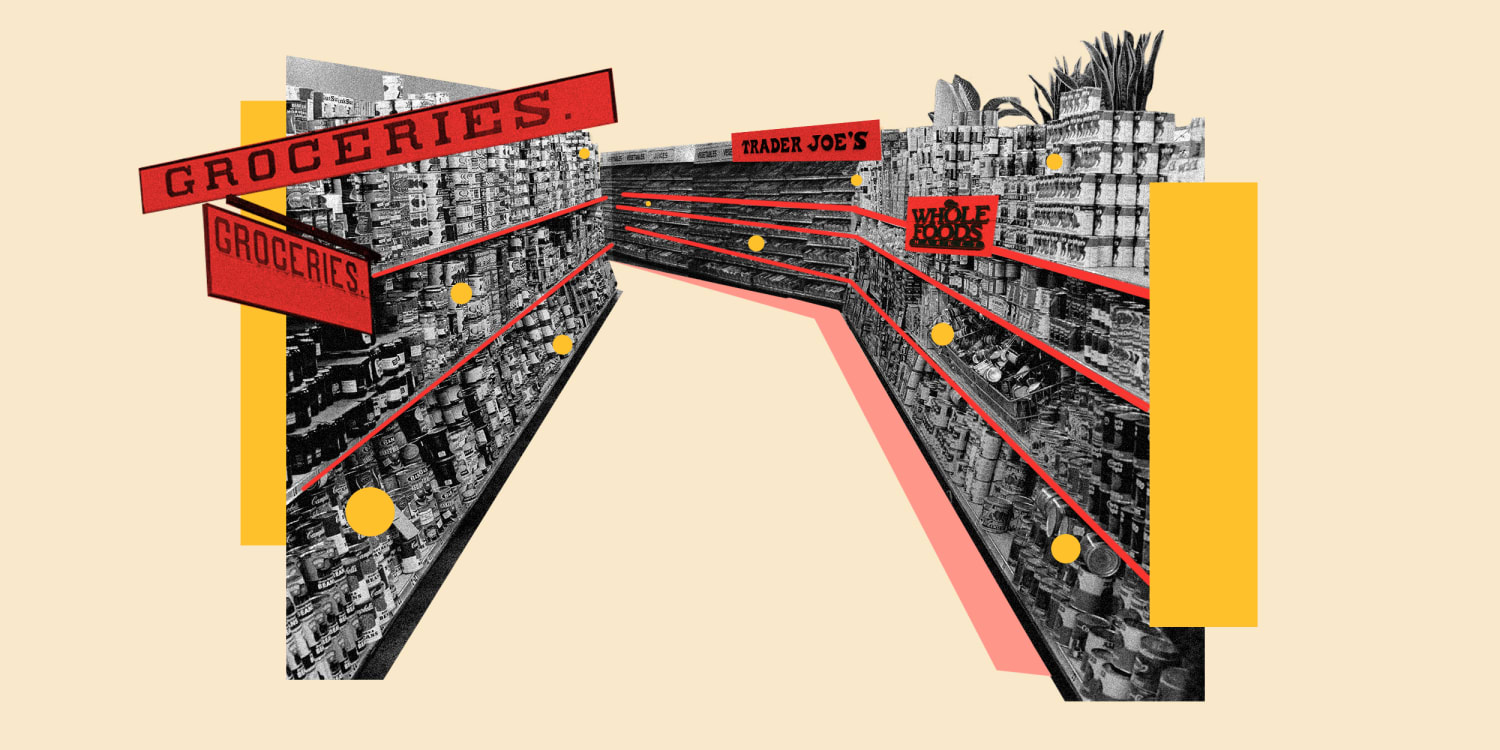“The greatest hindrance to knowledge is our adjustment to conventional notions,” Rabbi Abraham Joshua Heschel claimed. And so it is with the grocery store. We spend a not insignificant amount of our lives wandering its aisles, tsking over ingredient lists, dismissing subpar plums, without ever paying mind to the miracle occurring as we fill up our carts.
As we stroll the aisles, picking and choosing, many of us construct identities from the options.
It wasn’t always this way. When the first truly modern supermarket opened in 1930, on Jackson Avenue in Queens, New York, thousands lined up to tour it. Customers drove from miles away, and once inside, they reported feeling faint and dizzy from the options. This was a 6,000-square-foot store, mind you, far from the looming halls of a 200,000-square-foot Costco or Walmart today. Nor was this a uniquely American phenomenon. In 1956, in Rome, when the first supermarket opened overseas, curious Italians lost their minds. One woman began running up and down the aisles screaming: “It must be heaven. … There are mountains of food!”
Even before the pandemic transformed the act of grocery shopping, when those automatic doors whisked open, you probably weren’t quite as chipper. Instead of relying on a circus-like thrill of size and abundance, the grocery store of today competes by offering us cultural meaning. As we stroll the aisles, picking and choosing, many of us construct identities from the options. We buy foods to demonstrate that we are health-conscious or proud of our chocolate-y indulgence, that we care for our families through price savings or care for the Earth through ecological stewardship. Food helps us explore our connection to ancestors or to kin or just announce that we have a really special colon filled with really special colon biota that requires unique handling and care.
This new cultural competition works well for the grocers themselves. They target ever-tighter demographic segments — whether it is Trader Joe’s catering to the overeducated and underpaid, Whole Foods to the green-minded with green to spare or Aldi to the no-frills and budget-conscious crowd. But if all that talk about identity and values sounds a bit hollow — retail as expression of the self, retail as therapy, in the most literal sense — that’s because it is. When we take a step back and look at the industry as a whole, we see a different, more limited set of “values.” These are the values enacted, not expressed. Enacted at checkout by customers, in the backroom by industry buyers, on our highways by distributors and overseas by manufacturers. And so, instead of a wide range of wholesome values, the grocery industry ends up centered on just a few small primal things: convenience, high quality and low prices.
And if you look at that trinity a second time, you’ll realize they are all in tension: Serving one often comes at the cost of delivering another.
I spent five years exploring the grocery world in my book “The Secret Life of Groceries.” One of the biggest lessons I learned was how the grocery industry’s drive to serve us as consumers is pushing those tensions to a breaking point.
Every aspect of the industry I explored was caught in its own race to the bottom. These were often nested, each responding to pressures from above and driven by the desire to serve consumers who occupied the very top. They were also almost exclusively the consequences of bad incentive structures, not bad people. The grocery industry was filled with refreshingly humble men and women, working hard to serve. But it’s safe to say that when those tensions came to a breaking point, it was almost always labor that suffered.
I talked to truckers trapped in a system of debt peonage they called sharecropping on wheels. I traced a system of certifications that relied on “auditors for hire,” designed less to get accurate results and more to provide an affordable sense of comfort for the consumer. I worked alongside retail employees who were expected to be “team players” but instead were treated like disposable parts. This was before Covid-19, but suffice it to say, the empty sanctimony of labeling minimum wage workers “heroes,” of giving and then taking away their hazard pay, has driven industry morale to new lows.
At every step in the chain, the pressure was compounded, so at the very bottom it became inhuman.
In Thailand, after spending weeks with men who had been locked into factory housing or enslaved on boats against their will, trying to understand the bottom of the seafood chain, I listened with a queasy sympathy as supply experts described the shrimp industry’s cost structure. Every few years, buyers from the top arrived to ask for a new low price. With most costs fixed, the only variable an owner felt in control of was labor. And so, predictably, when the opportunity came — perhaps using a shady broker, perhaps outsourcing hiring to someone with “solutions” just out of sight — even high-minded people could justify embracing them.
These are not problems with food. And they will not be solved by thinking about our diet. The same abuses I looked into in the Southeast Asian seafood industry are intensifying in the region’s latex glove manufacturers as global sourcing responds to Covid-19. But we will never take them up if we can’t see our mundane trips to the grocery for what they are: secular miracles sustained by dizzying human effort.
Or, to go back to the theologian Heschel: “God is a challenge, speaking to us in the language of human situations.” Right now, we escape from the profundity of the grocery system by using it to focus on the very smallest parts of our lives — expressing our virtues through purchases, demonstrating our commitments through literal cans of beans. To fix our system, we will have to look beyond it. And perhaps our traditional response to a miracle points the way: as demanding our humility, suggesting our sacrifice and using awe to inspire a better version of the self.
Source: | This article originally belongs to Nbcnews.com











